#Iskari
Explore tagged Tumblr posts
Text
Fandom list:
Anime:
Attack on Titan
Black Butler
Bungo Stray Dogs
Death Note
Demon Slayer
My Hero Academia
Naruto
Series:
Castlevania
Dungeon Meshi
Sherlock
The Witcher
Wakfu
Movies:
The Rise of the Guardians
Into the Spider-Verse
Across the Spider-Verse
Books:
Folk of the air
Iskari
Games:
The Arcana
Cookie Run
John Doe
Your Boyfriend
#attack on titan#black butler#bungou stray dogs#death note#demon slayer#my hero academia#naruto#castlevania netflix#sherlock bbc#folk of the air#Iskari#cookie run#john doe#your boyfriend#Yandere#fandom#fandom list#request#the arcana#the witcher#rise of the guardians#wakfu#wakfu x reader#Spider-Verse#dungeon meshi
11 notes
·
View notes
Text
#tomi adeyemi#elizabeth lim#ten ciccarelli#iskari#six crimson cranes#legacy of orïsha#children of blood and bone#round 1#polls#fantasy book tournament
28 notes
·
View notes
Text

CLEARANCE PIN SET!
Get the Iskari and Namsara pair of pins for £2!!!
Check out the clearance section on my st0re for even more bargains!!

5 notes
·
View notes
Text
A Caçadora de Dragões | Iskari #1 | Kristen Ciccarelli
O que dizer quando te oferecem um livro com dragões na capa? Obviamente a única opção é dizer: SIM, POR FAVOR ME DÁ LOGO A CAÇADORA DE DRAGÕES. Obviamente eu amo dragões, é um fato incontestável. Daí como sou uma pessoa normal, às vezes, peguei o livro e quando pisquei o olho acabou… Que estranho, né? Onde está o livro 2? Cadê? Preciso!!! Certo, esqueci de dizer que adorei a leitura, partiu…
0 notes
Text
The Iskari welcome our squiddy mosaic overlords
Goofy Mosaic Wet Creatures Id like to share with the class

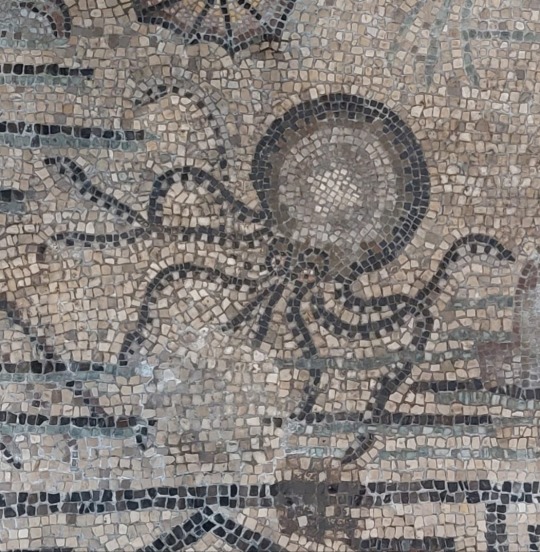


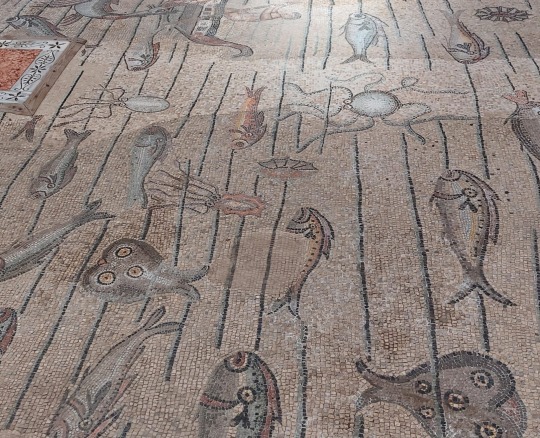
2K notes
·
View notes
Text

Map of the Embellished world from the Iskari trilogy by Kristen Ciccareli (map by Elsa Kroese).
2 notes
·
View notes
Text
Book Review 56 – Three Parts Dead by Max Gladstone

I consider myself a pretty big fan of Gladstone’s, but until now I’d only ever touched his standalone works – I was previously a bit put off by the length of the Craft Sequence and so never actually tried it. So, thank you to the people who recommended I give it a try anyway! Despite being the first in a series, Three Parts Dead is a perfectly fine self-contained story and not relying on you reading the sequels to finish anything important. While it’s not the best thing of Gladstone’s I’ve read (Last Exit my beloved), it’s not the worst, either.
The book takes place in an industrial fantasy setting about a generation out from the apocalyptic, centuries-long war between the old gods and the ‘deathless kings’ – human sorcerers who had learned to master magic such that they could face them and tear the world apart in the crossfire. Tara, the hero, graduated from basically-Hogwarts entirely because there’s a binding preventing the school from doing bodily harm to its students – the next second they literally threw her out a window at 10,000 feet. The story follows her as she’s hired as a junior associate helping a world-famous lawyer/archmage as she’s hired by the church of Kas Everburning to investigate the sudden and mysterious death of their god. What follows are several hundred pages of convoluted scheming, legal proceedings, forensic accounting, and bloody magical duels and assassinations.
There are a few twists I genuinely didn’t see coming, the plot overall hangs together very well, and the pacing was just about perfect for the kind-of pulpy mystery/adventure story it was. Overall just a great time reading it.
That said, the setting’s probably the main thing to really sell people on this book. It’s just fun, and actually pretty damn original. The basic conceits are that a) magic is real, and b) so is capitalism. Kas Everburning is the beloved god and protector of the city, and also a highly leveraged legal entity loaning power across the globe whose death would catastrophically destabilize the global financial/metaphysical/political system. Mages can fly and raise zombies and enscroll people, but it’s all done in the idiom and with the vocabulary of contract law.
Beyond the basic conceit, Gladstone just clearly delights in layering weirdness on weirdness. Vitally, he does actually have a bit of restraint with the exposition – the book’s full of off-hand comments about different places and institutions that make you (me, anyway) incredibly curious about what the hell their deal is, but the actual explanations are restricted to what’s actually relevant to the plot and what the characters actually need to know. I still really want to know what’s up with King Clock or the Iskari or a half dozen other things, though. So, top-tier worldbuilding.
The themes are not exactly subtle, but I very appreciate that Gladstone lets them mostly remain as worldbuilding subtext and manages to make them feel like they emerge very naturally. I appreciate the slight restraint it takes to let the reader draw their own conclusions about the fact that the city’s police force is so empowered by strength and lack of need for doubt when on the clock that it’s literally addictive, or that one of the main antagonists is a brilliant older academic whose masterwork is a system where his star pupils (including a disproportionate number of attractive young women) are magically networked together to achieve incredible results he can take credit for while their lives and personalities are drained away to nothing. Being able to literalize the subtext a bit is half the fun of secondary wrld fantasy, after all.
Anyway, yes, very fun read. Four stars.
48 notes
·
View notes
Text
I was tagged by @humanbra (and as usual failed to answer in a decent amount of time)
Rules: Tag 10 people you’d like to get to know better!
Relationship status: single
Favorite colour: lilac
Song stuck in my head: Trio avec piano op 100 (schubert) or, if we're talking "song with words", Schön genug (Haller)
Dream trip: changes all the time, but right now, somewhere calm where I can basically be alone with my thoughts
Last googled: Uh...générateur de couvertures Martine 🤣
Anything I want now: a certain e-mail
Last song listened to: Reckoning song
Currently watching: L'Art du Crime
Currently reading: Iskari T2, and quite a lot of fanfics
Current obsession: L'Art du Crime (and i blame you @bourbon-ontherocks)
10 of your comfort shows: Doctor Who, One Day at a Time, HPI, OUAT, Vox Machina, She-ra, Heartland, Anne with an E, Lie to Me, Sherlock
tagging: @bourbon-ontherocks, @earanie, @pia-writes-things, @susanvstorm, @niimuue, @nike-sga
10 notes
·
View notes
Text
“No,” she said, “this is not the dead city.”
“Where, then?”
“We are in my garden, in a city with a name we rarely whisper—a city that threads itself around the world of iron words the Iskari forged. We are not angels anymore. We do not take on shapes of righteous truth. But we build, though the Wreckers think our building a subversion.”
Ruin of Angels
12 notes
·
View notes
Text
Send a Review!!
The first round of books was eliminated and I wanted some help talking about the book eliminated. There are so many amazing books that unfortunately were cut but still deserve their time to shine. I was hoping I could share people's reviews of the books eliminated, as I have not read them all.
I was hoping people would send asks with reviews or send me a review they had previously written to reblog. I'll post ones for the books I have read over the next week!
Not all reviews need to be glowing reviews, but if you didn't enjoy some of the books, also please feel free to send a review explaining why as well!
I'll use the tags of the eliminated works as well as "book reviews"
List of books under the cut!!
mercy thomas by patrica briggs
lightbringer by brent weeks
the golem and the jinni by helene wecker
prince of thorns by mark lawrence
chronicle of the unhewn throne by brian staveley
between earth and sky by rebecca roanhorse
criers war by nina varela
among others by jo walton
dead jinn universe by p. djeli clark
the raven tower by ann leckie
the grace of kings by ken liu
shades of milk and honey by mary roinette kowal
a land fit for heroes by richard k morgan
the stardust thief by chelsea abdullah
witchmark by cl polk
tailchasers song by tad williams
darkest powers by kelley armstrong
three dark crowns by kendare blake
the queen of tearling by erika johansen
mirror visitor by christelle dabos
we hunt the flame by hafsah faizal
the naming by allison crogan
iskari by kristen ciccarelli
kaikeyi by vaishnavi patel
a song of wraiths and ruin by roseanne a brown
book of tea by judy i lin
elatsoe by darcie little badger
blood heir by amelie wen zhao
labyrinth lost by zoraida cordova
girls made of snow and glass by melissa bashardoust
the reader by tracie chi
shadowshaper by daniel jose older
44 notes
·
View notes
Text
Long rambling notes about different characters’ perspectives on the beginning of the God Wars in Ruin of Angels by Max Gladstone.
Zeddig: rose-colored glasses towards Old Alikand, inclined to gloss over any atrocities or strategic blunders on the part of the High Families
Tara: biased in favor of Gerhardt, admires Old Alikand as a godless society, “grand unforeseeable tragedy” arising from conflicting interest of two noble forces
Bescond: skewed towards justifying the Iskari occupation, emphasizes or possibly exaggerates Gerhardt as a monster to contrast with Iskari as saviors but also denigrates Old Alikand
I wish I could hear more of how Raymet understands the story. “some of us have theories” like what Raymet? probably something that makes Zeddig’s ancestors look bad
It is interesting to note that Ley's final summation of the story mentions “heroism”, but she doesn’t say who she regards as heroic.
(none of these biases necessarily represent malice or dishonesty on anyone’s part, they’ve all been taught about the events from different perspectives and have different priorities)
-
Zeddig locates responsibility for the Wars with Gerhardt’s decision to stay in Alikand, not the Families’ decision to attack him or the foreign gods’ involvement (which, I mean, this is probably fair but still it is a thing)
-
Here’s how Zeddig describes the origin of the Wastes:
“Drained of power, torn from their faithful, they hid in dumb matter. Desperate, they fused sand to glass and stranger forms, built labyrinths to hide within. Matter is not so comfortable as a mind, to a god. But they tried to take the story matter tells itself - I am a stone, I am sand, I am a river - and shelter there. So, in his rage, Gerhardt broke even those simpler stories. And here we are.”
In Zeddig’s narrative, Gerhardt’s enemies were already defeated and fleeing for their lives when he, motivated by rage, broke reality in order to kill them. Her telling encourages sympathy for the gods by placing emphasis on their suffering and presents Gerhardt's final attack upon them as a pointless, vindictive act of destruction.
Here’s how Tara describes the same events:
“These are... the nightmares of dying beings, feasting on one another, growing inside one another to burst from each other’s chests. They war against themselves, in this world Gerhardt wrecked. In his hunger, Gerhardt scraped away the [...] thingness [...] from the Wastes - and when he began to die, he lost control.”
Tara's use of the word hunger implies need, maybe even desperation, on Gerhardt’s part. She doesn’t totally exonerate him - this world Gerhardt wrecked is pretty blunt about the harm he caused and his responsibility for it - but she emphasizes that he was fighting for his life against powerful enemies. She also mentions that he lost control, possibly implying that he did not predict or intend the full extent of the damage he caused. Her description of the gods evokes pity and horror more than respect or compassion.
0 notes
Text
reading challenge #11 (wrap-up)
Just finished: The Mark of Athena by Rick Riordan
Currently reading: The House of Hades by Rick Riordan
Next on schedule: The Blood of Olympus by Rick Riordan
I just wanted to add for myself a little conclusion to the reading challenge I did last year! I went back to university, so I had a lot less time and motivation to read for the past six months. Because of that, I didn't achieve my goals in the end, but that's alright, I'm still very proud of all the dusting-off I did! My TBR pile is much more manageable now, so I will not be keeping up with this challenge in 2024 (I barely read anything not Percy Jackson-related since January, anyway).
So, if anyone is interested in random lists of books, in 2023 I checked off my program:
(FR) Le Prieuré de l'Oranger (The Priory of the Orange Tree) by Samantha Shannon
(FR) La voleuse de livres (The Book Thief) by Markus Zusak
(FR) L'École des femmes + Le Misanthrope by Molière
(EN) Babel, or the Necessity of Violence by R. F. Kuang
(EN) Wuthering Heights by Emily Brontë
(EN) Daughter of Smoke and Bone + Days of Blood and Starlight + Dreams of Gods and Monsters by Laini Taylor
(FR) Le Chien des Baskerville (The Hound of the Baskervilles) by Arthur Conan Doyle
(FR) Thérèse Raquin by Émile Zola
(FR) Le symbole perdu (The Lost Symbol) by Dan Brown
(FR) Siddhartha by Hermann Hesse
(FR) Il était une fois dans le Nord (Once Upon A Time In The North) by Philip Pullman
(FR) Le Roi Lear (King Lear) by William Shakespeare
(EN) The Conqueror’s Saga (And I Darken + Now I Rise + Bright We Burn) by Kiersten White
(FR) Le Flambeau + Témoin à charge by Agatha Christie
(FR) Boudicca by Jean-Laurent Del Socorro
(FR) Fantômes et kimonos by Kidō Okamoto
(FR) Dans l'ombre de Paris by Morgan of Glencoe
For a total of 23 books out of my goal of 30 that I had owned for years and never read!
Which means that my TBR pile now amounts to these 12 books (I acquired the last 4 last year so they were not included in my program):
(FR) L'Ultime Expérience by Bruce Benamran
(FR) Cinna by Corneille
(FR) Othello by Shakespeare
(EN) Three Dark Crowns (re-read) + One Dark Throne by Kendare Blake
(EN) Iskari, the Last Namsara by Kristen Ciccarelli
(EN) The Merciful Crow by Margaret Owen
(FR) Le complot des corbeaux by Ariel Holzl
(FR) La mythologie viking (North Mythology) by Neil Gaiman
(FR) La métamorphose by Franz Kafka
(EN) A Day of Fallen Night by Samantha Shannon
(EN) The Picture of Dorian Gray by Oscar Wilde
In addition to all that, although disregarding anything fanfictitious, last year...
(and because I barely have any self-control when it comes to books)
...I also read these, which were not initially included in my program:
(EN) And Then There Were None by Agatha Christie
(EN) Pachinko by Min Jin Lee
(FR) Le château de Hurle (Howl’s moving castle) by Diana Wynne Jones
(EN) The Princess Diaries vol. 1 by Meg Cabot
(EN) Strange the dreamer + Muse of Nightmares by Laini Taylor
(EN) Pride and Prejudice by Jane Austen
(EN) Divergent vol. 1 by Veronica Roth
(EN) Legendborn + Bloodmarked by Tracy Deonn
(FR) Comme un vol d'étourneaux by Giorgio Parisi
(FR) Le meilleur des mondes (Brave New World) by Aldous Huxley
(EN) I’m Glad My Mom Died by Jennette McCurdy
(EN) Crooked House by Agatha Christie
(EN) Untethered Sky by Fonda Lee
(FR) La guerre des clans (Warriors) - cycle I vol. 1-6 by Erin Hunter
(EN) Tallstar’s Revenge by Erin Hunter
(FR) Le mystère de Listerdale by Agatha Christie
After all these gruesome lists, I can finally put to rest my 2023 reading challenge. Maybe one day I'll renew it, but I probably won't have the time nor the energy to schedule my readings so seriously for the next two years. It's been very fun though, also it had been the first year in quite some time that I read that much in French, and I think it did me good.
(prev)
#the end#i should have done this in January it feels so out-of-place now#welp it is what it is#reading challenge#books#my post#ramble#text
1 note
·
View note
Photo
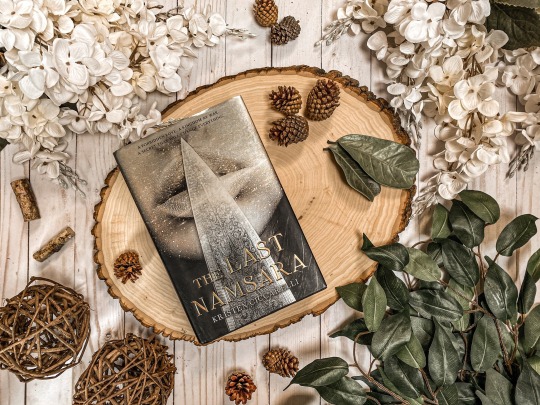
“Once there was a girl who was drawn to wicked things. Things like forbidden, ancient stories.” (The Last Namsara, Kristen Ciccarelli)
(review, instagram)
#the last namsara#iskari#kristen ciccarelli#books#bookstagram#book aesthetic#book#booklr#caitsbooks#bookworm#dragons#original#photo
23 notes
·
View notes
Photo
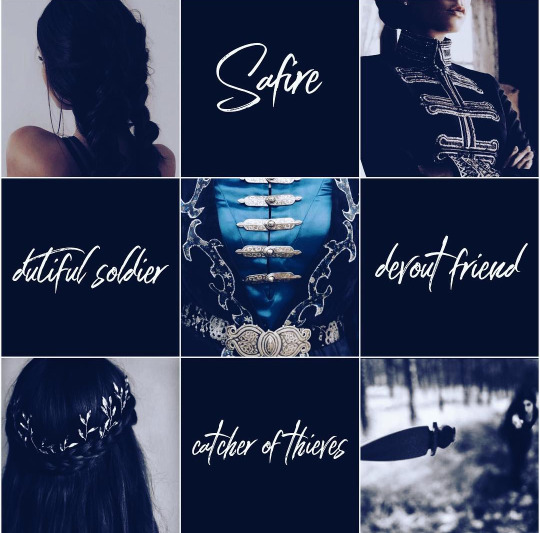
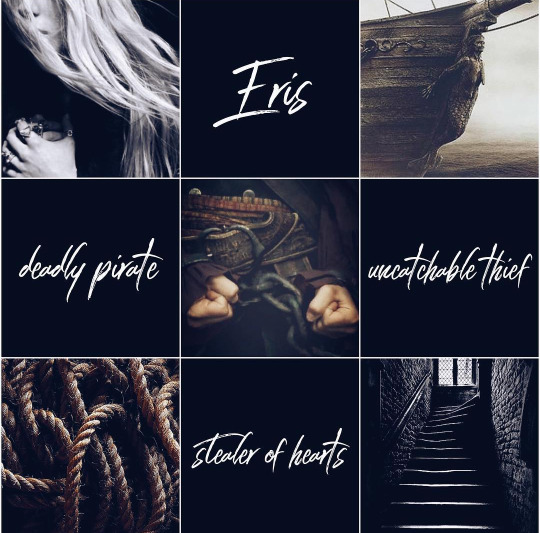
"Solidão era um preço pequeno a pagar para permanecer viva."
"- Lealdade - resmungou Eris entre os dentes - é um luxo a que a maioria de nós não pode se dar.
11 notes
·
View notes
Text
What to Read While Stuck in Quarantine
Right now, many people (myself included) are stuck inside and social distancing due to the Hell that is considered our world because of Corona. As a fun activity for myself and in the hopes of maybe helping a few people through this weird/uncomfortable/stressful/whatever other negative phrase you want to use time, I thought I’d compose a list of books that may occupy your time. I’m going to try and stick with completed series or stand-alones so that in addition to everything else you’re not miserable you have to wait for a new book.
Similiar to my Non-Horror October reads post, I’ll add the Goodreads link so you can check out ratings and such!
So...here is my list of books that might help get you through the dumpster fire that is our current situation!
(I am aware some of these are very popular but I’m adding them anyway in case someone hasn't read them)

Throne of Glass by Sarah J Maas
After serving a year in a slave camp, Celaena Sardothien is granted the chance at freedom when the crown prince chooses her to be his champion in a competition to find the new royal assassin.
If you haven't read this series yet and love YA fantasy please do yourself a favor and get it. Katie and I love it so much
A Court of Thorns and Roses by Sarah J Maas
A loose retelling of Beauty and the Beast; Feyre is dragged off as a prisoner to a magical kingdom after killing a faerie while hunting in the woods. She comes to learn that maybe her captor, a beautiful Fae trapped in a mask, might not be as terrible as she thought.
I’m not even going to lie this was difficult to give a two sentence summary of. The first book is great but 2 and 3 are exponentially better and Feyre is just the badass woman we all need.
The Iskari Trilogy by Kristen Ceccarelli
Asha is the Iskari, responsible for hunting dragons in her kingdom. Engaged to a man she will never love, she is given the opportunity to prevent her marriage by killing the most ancient of all dragons.
All three of these books are interconnected but each one follows a different main character. They were all AMAZING, but book two (The Caged Queen) was my favorite
Shadow and Bone by Leigh Bardugo
In the country of Ravaka, cut in half by a darkness called The Shadow Fold, Grisha are an elite magical group. After learning of her own abilities during an attack on the fold, Alina Starkov is taken away to learn to harness her power while under supervision of their leader, The Darkling.
I put off reading these like an idiot and finished them a few months ago and absolutely loved them. King of Scars is a continuation but maybe wait until the second one comes out to read it because I’ve been struggling getting over it and anxiously waiting for any news about it.
Six of Crows by Leigh Bardugo
Kaz Brekker is one of the most notorious criminals in Ketterdam. When offered a job that will make him rich beyond his wildest dreams, he gathers a crew that can help him pull off a deadly heist.
This book has an array of diverse characters and a lot of excitement and hijinks. Takes place in the same universe as Shadow and Bone, so I would recommend reading it after them, but it can be done on its own.
The Wicked Deep by Shea Ernshaw
The small town of Sparrow is located on the coast of Washington and has a troubling history. Every summer witches possess three mortal girls and use their bodies to lure boys into the ocean and drown them. When a new boy arrives Penny doesn't know if she will be able to protect him from her sinister home.
I read this one in a day and absolutely loved it. Easy and entertaining read.
The Shadows Between Us by Tricia Levenseller
Alessandra is tried of being in the shadow of her older sister so she devises a plan: make the Shadow King fall in love with her, marry him, and then kill him and take his kingdom.
This book was described as a ‘slytherin love story’ and I was all about it. It was an easy read and definitely kept me intrigued in the story.
Gone by Michael Grant
All adults disappear, along with cell phones, internet, and any other way to get help. Teens are left to pick up the pieces in this sic-fi story.
I read this series a pretty long time ago but it was SO GOOD. Grant did such a great job sucking you in, to this day I will still recommend it to people.
The Fever Series by Karen Marie Moning (Book #1 is Darkfever)
When her sister is murdered, MacKayla travels to Ireland in search of answers. While there she learns she is able to see beyond the human realm, into the real of the Fae.
Honestly this series was so wild and I remember there being some unnecessary erotic stuff but it was still SO DAMN ENTERTAINING. A good way to escape the humdrum of quarantine life.
Anything by Gillian Flynn
If you need a thriller, murder mystery, etc just honestly pick Gone Girl, Sharp Objects, or Dark Places. They're all so good.
Caraval by Stephanie Garber
Scarlett has always wanted to participate in the fantastical performance that is Caraval. She gets her wish when an invitation arrives, but then regrets it when she learns the performance centers around her sister Tella, who has been kidnapped by Caravel Master Legend.
I love these books. Scarlett and Tella are both amazing in their own way and the mystery and not knowing what is real and whats part of the game makes it so fun to read.
These Rebel Waves (Stream Raiders) by Sara Raasch
Adeluna is a soldier that helped free her home island of Grace Loray from its oppressors, the kingdom of Argrid. Devereux is a pirate, sailing the waters of Grace Loray and collecting its magic plants and selling them on the black market. Benet is the Crown Prince of Argrid, unsure of his father’s beliefs and methods after watching his uncle and cousin burned to death after practicing magic. Their fates are intertwined as they all search for peace between Grace Loray and Argrid.
Katie and I both just read this and they were so good. The beginning is a little slow but the history you get on all the characters is great.
Angelfall (Penryn and the End of Days) by Susan Ee
Angels of the Apocalypse have fallen to Earth. Streets are ravaged and life as we know it is over. When Penryn’s little sister is taken by Warrior Angels, she's willing to do anything to get her back, even make a deal with an enemy angel.
I looked for a hard copy of this trilogy everywhere and couldn't find it, so finally gave up and got the kindle books. I loved it, the end of world sci-fi and enemies-to-lovers tropes were wonderful.
The Knife of Never Letting Go (Chaos Walking) by Patrick Ness
Todd Hewitt lives in a town of only men, where everyone can hear each other’s thoughts. He stumbles across a girl in the swamp, the only one he’s ever seen and it sets off a chain of events that can't be stopped. On the run and hunted by the only people he's ever known, Todd tries to discover the dark truth of his world.
This series was so well written and just sucked you in. Even if it seemed like nothing was happening or was going to happen soon, I couldn't put it down. The books are all long too so thats a plus for quarantine reading.
And if you need something to bring you back to a time when things were simpler, may I recommend rereading some old favorites, two of mine are:
Harry Potter by J.K Rowling and Percy Jackson and the Olympians (also The Heroes of Olympus) by Rick Riordan
These don't need links, but they were two series that I loved when I was younger. The Goblet of Fire was the first big chapter book I ever read on my own and PJO just was so fun. I just read all the PJO graphic novels because I found them when I redid my bookshelves and it was a nice little escape.
Honestly, I have more recommendations but I feel like this is a long post already so I’m going to stop here and maybe I’ll do another one.
Anyway...happy reading, I hope this helps someone. It definitely improved my mood. Just remember High School Musical and hopefully we’ll get through this soon.

#books#booklr#book recommendations#book rec#throne of glass#tog#sarah j maas#sjmaas#a court of thorns and roses#acotar#the last namsara#the caged queen#ISKARI#kristen ciccarelli#shadow and bone#siege and storm#ruin and rising#the grisha series#leigh Bardugo#six of crows#crooked kingdom#the wicked deep#shea ernshaw#the shadows between us#gone#michael grant#the fever series#karen marie moning#gillian flynn#gone girl
53 notes
·
View notes
Text
What has Tara learned about the space spiders since Alikand?
Last time we saw Tara – and, actually, anyone in the Craft Sequence universe – they were fighting the Iskari Rectification Authority and the gods from the Wastes to defend the ancient hidden city of Alikand. As part of this battle, Kai went to space (yeah Gladstone doesn’t stay within genre boundaries, we’re getting into sci-fi territory in a marvellous way) and listened to what was out there.
“What did you hear?” “Stars. They . . . sing.” “And.” “I heard—legs. Skittering closer. Whispers older than time. They speak in the pulses of distant suns. They’re so, so hungry. And they smell us.”
That was two years ago. Since then, Tara has worked with Kai, the Twin Serpents Group and all her other allies to figure out what the hell is out there. To figure out what is coming for them.
But what are the skazzerai? What has Tara learnt since Alikand?
#craft sequence#dead country#max gladstone#craft wars#skazzerai#sff books#tara abernathy#thehiddenschools
2 notes
·
View notes